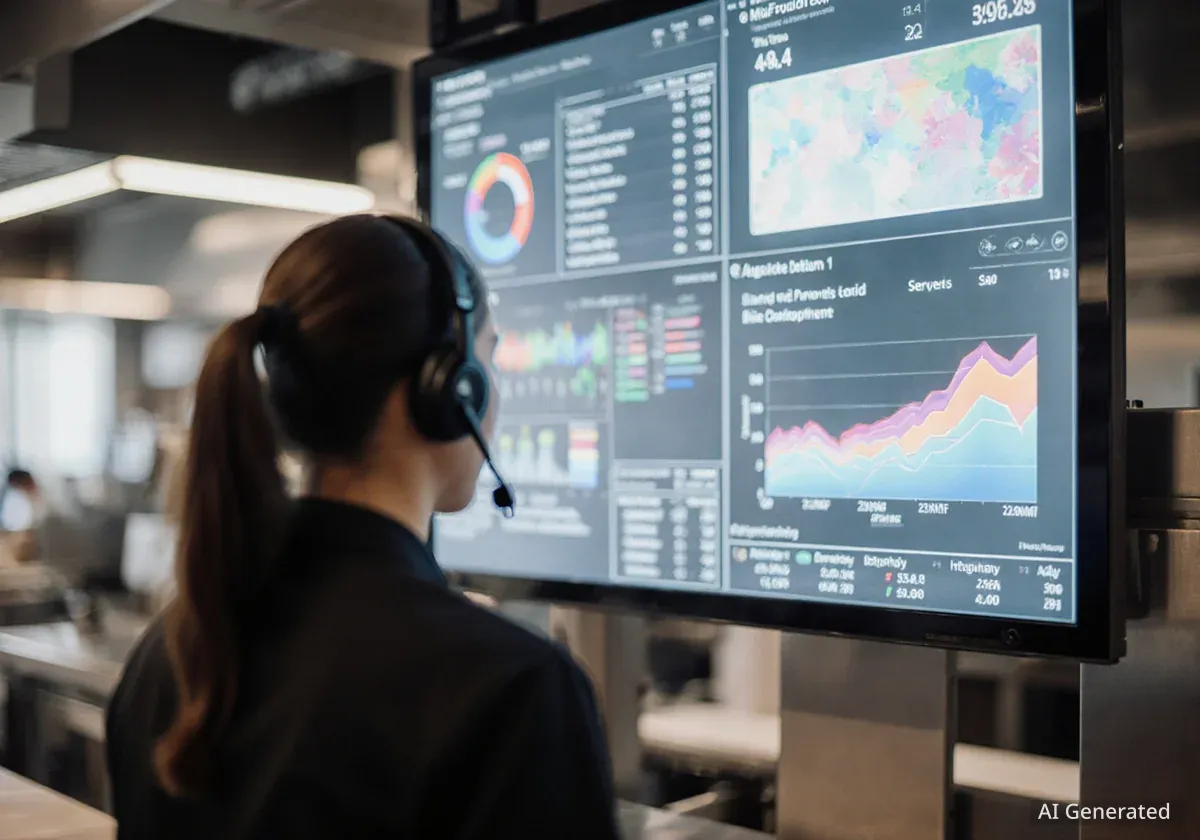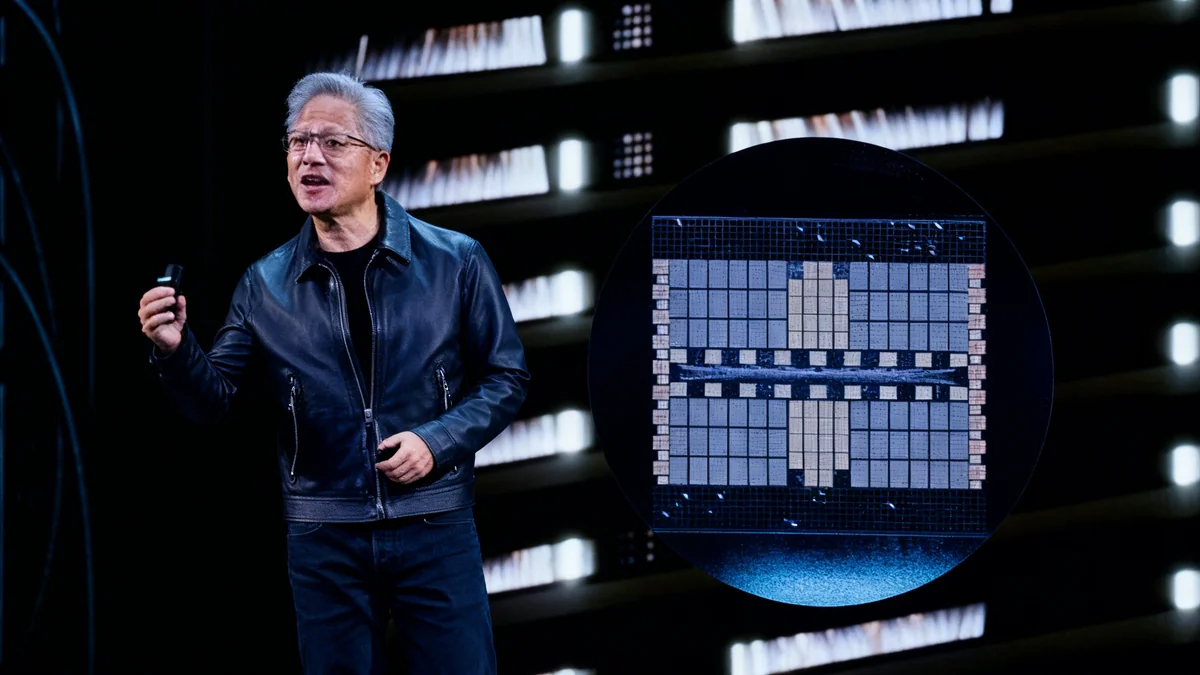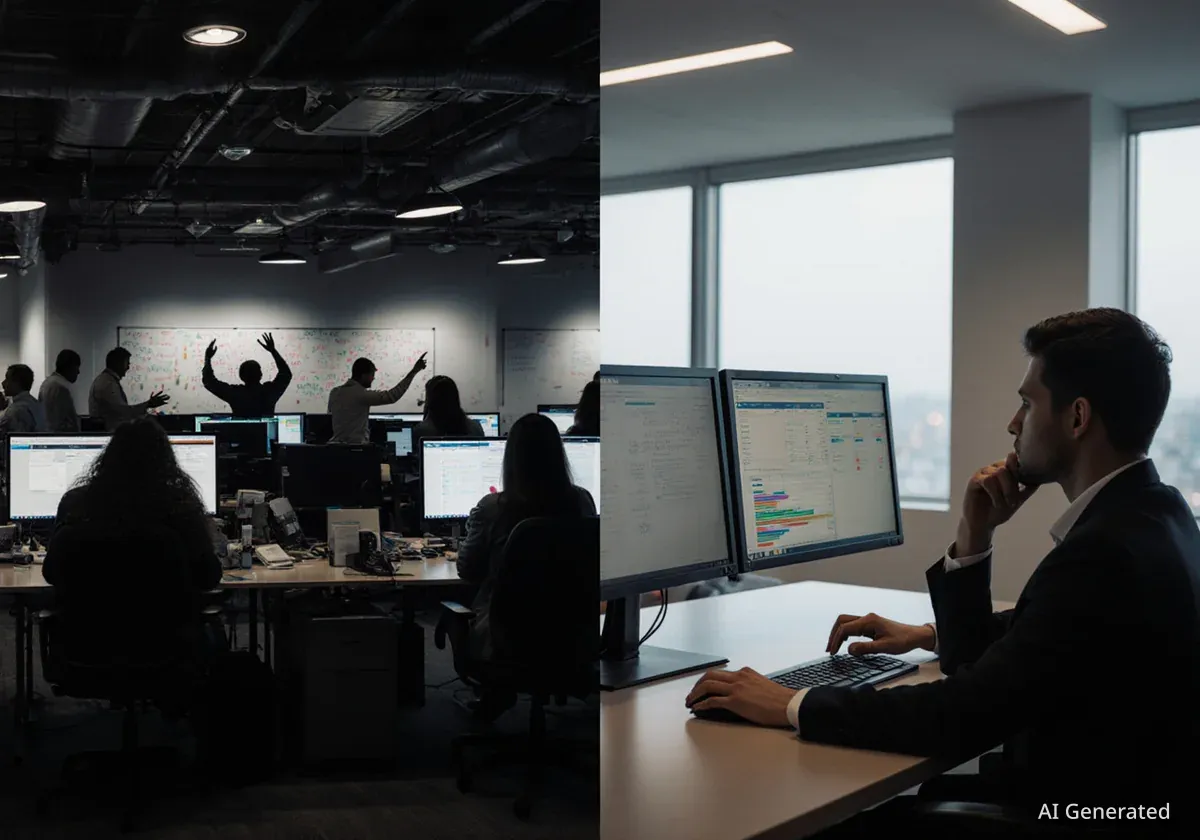Walmart is actively hiring skilled engineers, particularly those with expertise in artificial intelligence, even as the company develops sophisticated AI agents to automate complex tasks. Sravana Karnati, the executive vice president of global technology platforms, confirmed that the demand for top engineering talent remains high as the retail giant integrates automation into its operations.
This strategy aligns with CEO Doug McMillon's recent statement that AI will fundamentally change every job. While some roles will be eliminated, new ones are expected to be created. The company projects its global workforce of approximately 2.1 million will remain stable in size over the next three years, but the composition of jobs will significantly evolve.
Key Takeaways
- Walmart continues to hire engineers, creating new roles like "agent developer" to build and deploy AI automation.
- The company's global workforce is expected to stay flat for three years, but the types of jobs will change due to AI.
- Over 200 internal AI agents have been developed, now unified under a "super agent" named Wibey to boost productivity.
- AI has improved productivity in software accessibility compliance by eight times, identifying 60% of bugs and fixing 95% automatically.
- More than 95% of Walmart's software engineers use AI coding assistants like GitHub Copilot.
Walmart's Dual Strategy: AI Integration and Talent Acquisition
Walmart is pursuing a two-pronged approach to its technological future. On one hand, it is heavily investing in AI agents—autonomous bots designed to perform tasks on behalf of human employees. On the other hand, it is actively recruiting engineers to build, manage, and scale these very systems.
This strategy addresses the evolving nature of work within the company. According to Sravana Karnati, "Good engineers are always needed." This sentiment underscores the company's belief that human expertise is crucial for steering its technological transformation, even in an era of increasing automation.
The company's recruitment efforts reflect this focus. Many of Walmart's open engineering positions now list AI-related skills as a requirement. In a recent development, the company created a new position specifically titled "agent developer," tasked with deploying AI agents to automate complex workflows across the business.
The Broader IT Job Market
Walmart's continued hiring of specialized engineers occurs amid a general contraction in the wider IT jobs market. Ongoing economic uncertainty has led many companies to become more selective, prioritizing candidates with high-demand skills, particularly in artificial intelligence. Walmart's focus on AI talent positions it to attract top candidates in a competitive field.
The Rise of AI Agents in Walmart's Operations
AI agents have already become a significant factor in boosting productivity for Walmart's software engineering teams. Karnati revealed that the company's developers have built more than 200 distinct AI agents to handle various tasks.
To manage this growing ecosystem of automated tools, Walmart introduced a "super agent" named Wibey in August. This central system allows engineers to register newly created agents and advertise their capabilities for other employees to use, creating a unified and accessible platform for automation.
"We continue to adjust our workforce given the new realities, but we’re still working very hard to find the right talent in the market," said Sravana Karnati, Walmart’s executive vice president of global technology platforms.
Practical Applications and Measurable Gains
One of the most successful applications of AI agents at Walmart has been in ensuring software accessibility. These agents automate the process of checking that the company's apps and website are usable for people with disabilities.
The results have been substantial. According to Karnati, these agents automatically identify 60% of software bugs related to accessibility compliance and automatically fix 95% of them. This has led to an eightfold improvement in productivity in this specific area, allowing human engineers to focus on more complex challenges.
Key Productivity Metrics
- Accessibility Bug Identification: 60% automated.
- Accessibility Bug Fixes: 95% automated.
- Productivity Increase: 8x improvement in accessibility compliance tasks.
- AI Assistant Adoption: Over 95% of engineers use tools like GitHub Copilot.
Beyond accessibility, AI is also helping modernize Walmart's legacy software code. Some of this code was written decades ago in older languages, making it difficult for new developers to understand. Previously, engineers had to spend significant time consulting with senior employees. Now, AI tools can analyze and explain this legacy code, accelerating the modernization process.
The Future of Work: Humans and AI Collaboration
Walmart's long-term vision involves a workplace where humans and AI agents collaborate closely. Karnati anticipates that AI agents will become sophisticated enough to not only interact with humans but also to collaborate with each other to solve problems.
This new dynamic will create new management challenges. Karnati described a potential scenario where a human engineering manager assigns a problem to a team of AI agents to work on overnight. The manager would then return in the morning to inspect the work completed by the bots.
This vision highlights a shift in the role of human workers. Instead of performing repetitive tasks, employees will increasingly be responsible for managing, supervising, and validating the output of AI systems.
A Walmart representative reinforced this view, stating the company will "continue to invest in upskilling, recruiting top-tier engineers with deep expertise, and redeploying talent to areas that demand uniquely human strengths."
Maintaining Human Oversight
Despite the rapid advancements in automation, Walmart emphasizes that humans will remain central to its operations. The company is not aiming for a fully autonomous system where AI makes all decisions without supervision.
"We’re not at a point where we can let an agent run loose and let it solve all kinds of problems," Karnati explained. "We will still keep humans in the loop."
This commitment to keeping a "human in the loop" is a critical aspect of Walmart's AI governance strategy. It ensures that while AI enhances productivity and discovers new problems to solve, human judgment and ethical oversight remain paramount. The company has not disclosed its total spending on technology investments or the specific financial returns from these AI initiatives.





